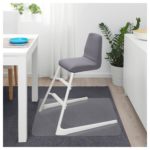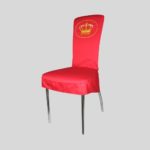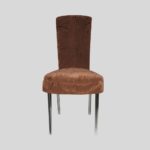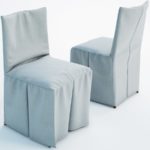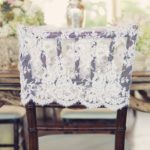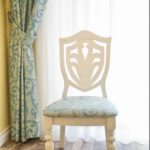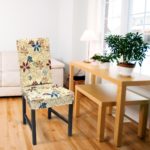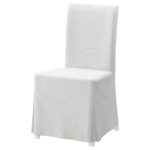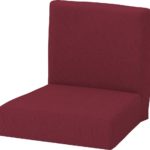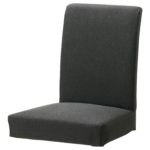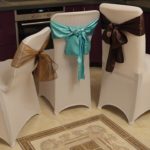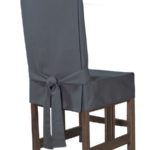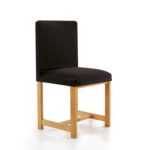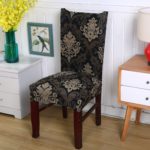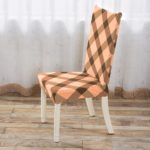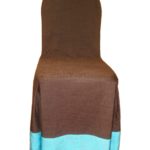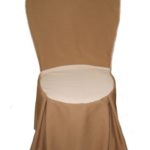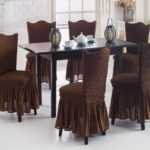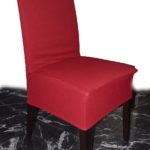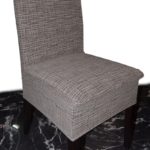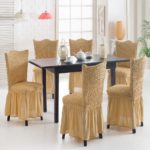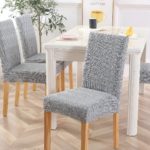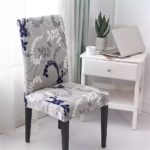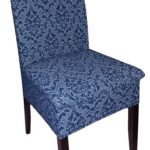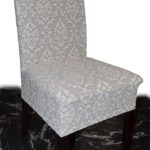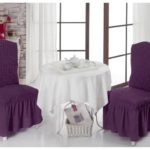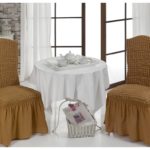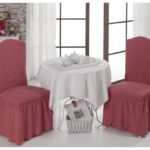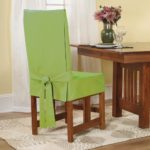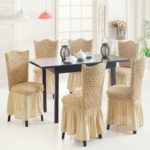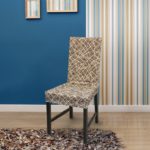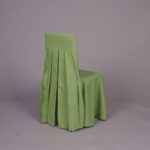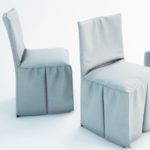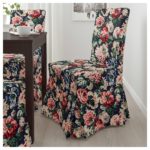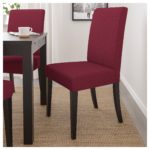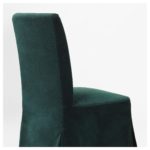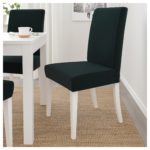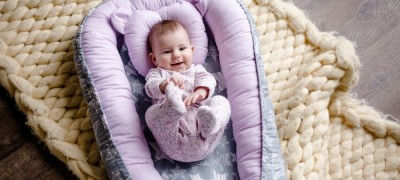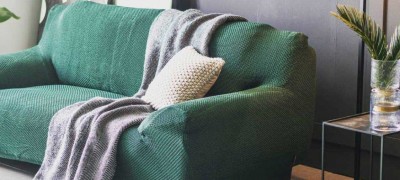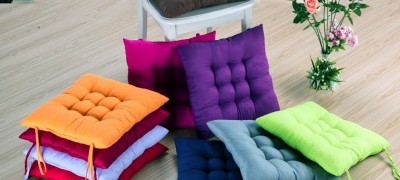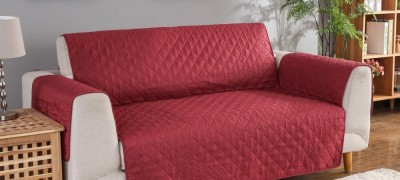How to sew chair covers with a back
Furniture covers provide excellent protection against dirt, stains and fading. In addition, they look very neat, stylish and create a luxurious atmosphere in the interior. Moreover, such a product can cover not only upholstered furniture, but also standard dining chairs, garden options or a computer chair.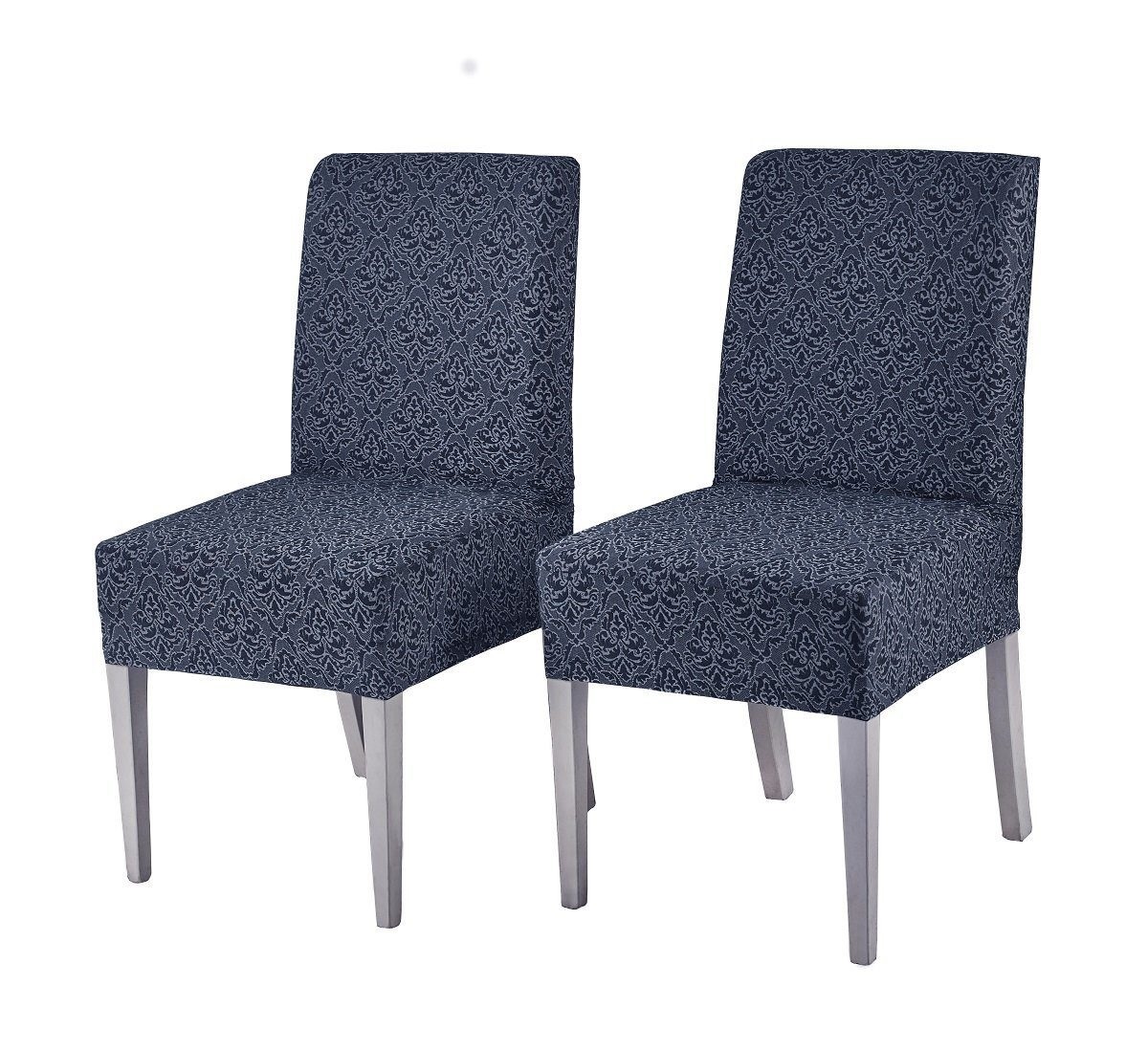
Do-it-yourself chair covers are easy to sew, even for an inexperienced housewife. In case of self-production, you can choose any design, finish and fabric.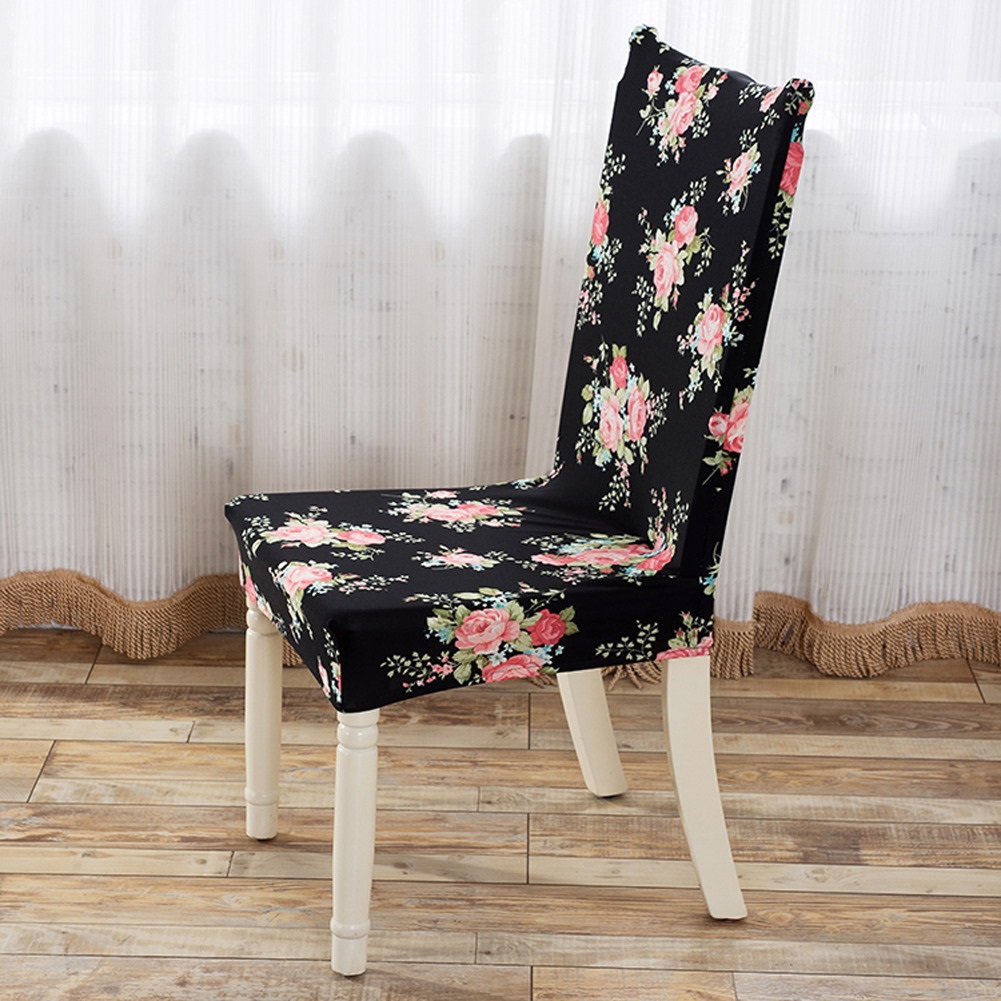
We select the shape and material of the fabric for the chairs
With the help of soft decor, it is easy to change the style and color scheme of the interior. This applies to both bedspreads and covers for sofas, armchairs and chairs. That is why such products have gained popularity among housewives. At the same time, you can choose any shape and decor, which outwardly will change the look of furniture.
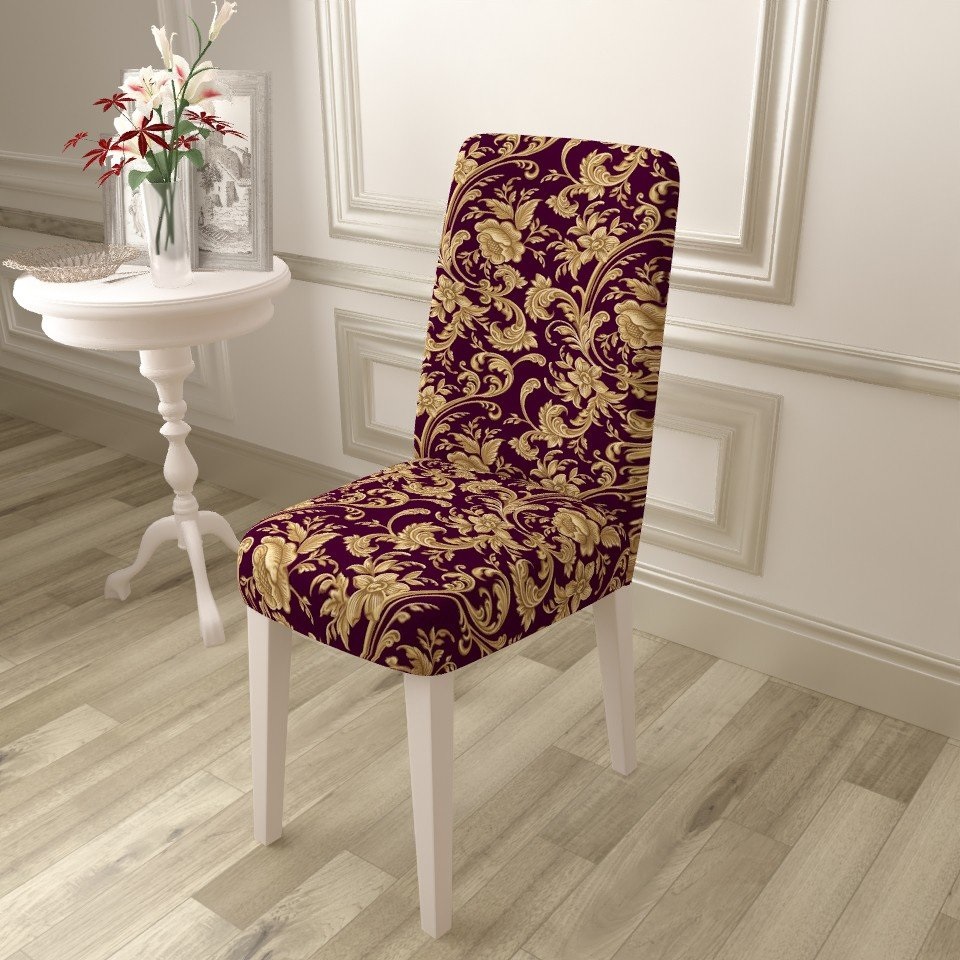
Consider the types of models.
Selected
The set consists of seat and backrest models. The parts of the kit have different patterns. Simple options can be attached to an elastic band and have a simple pattern. Other products are made exactly according to the shapes of the furniture with the necessary darts and angles. Such products will be appropriate in any interior: hi-tech, Japanese, Arabic, classic or Scandinavian.
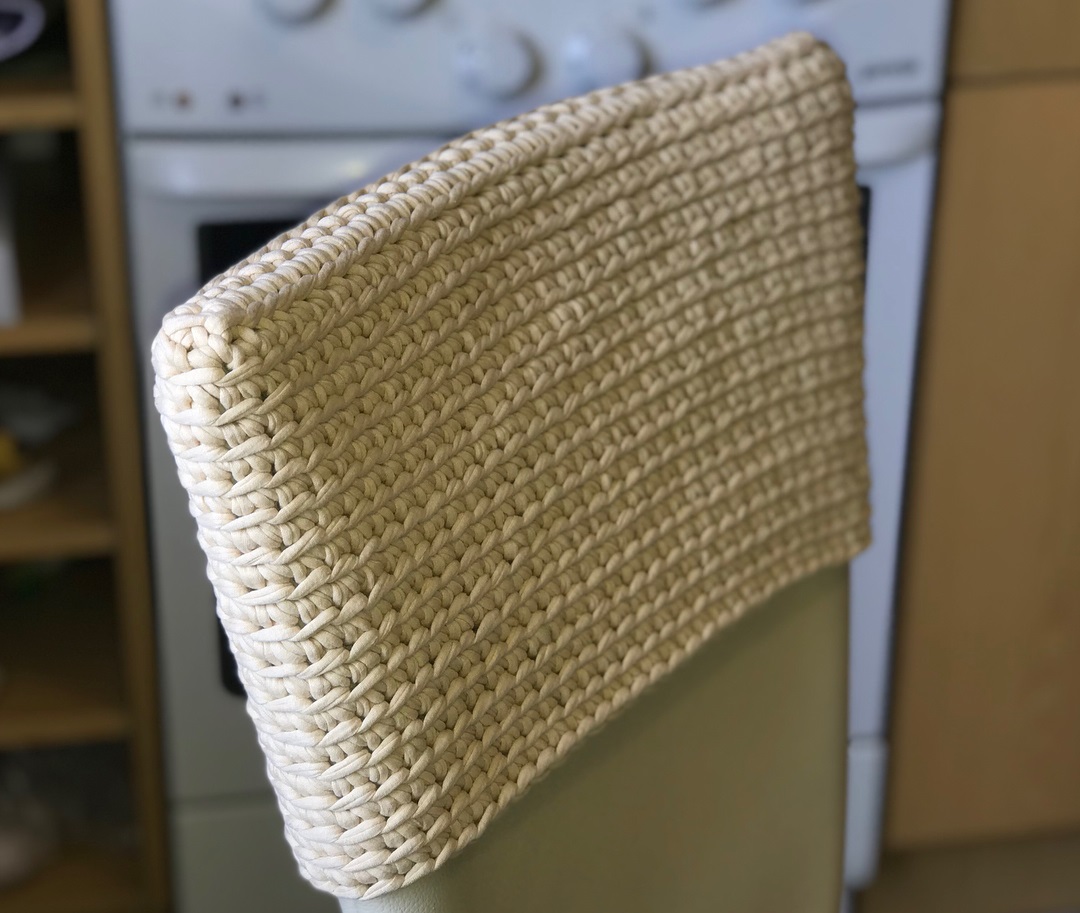
Seats
They are shaped to fit the seat and only cover the cushion. Seat products are the most important, as this is the part of the furniture that wears out the most. The design of the models can be matched to any interior.
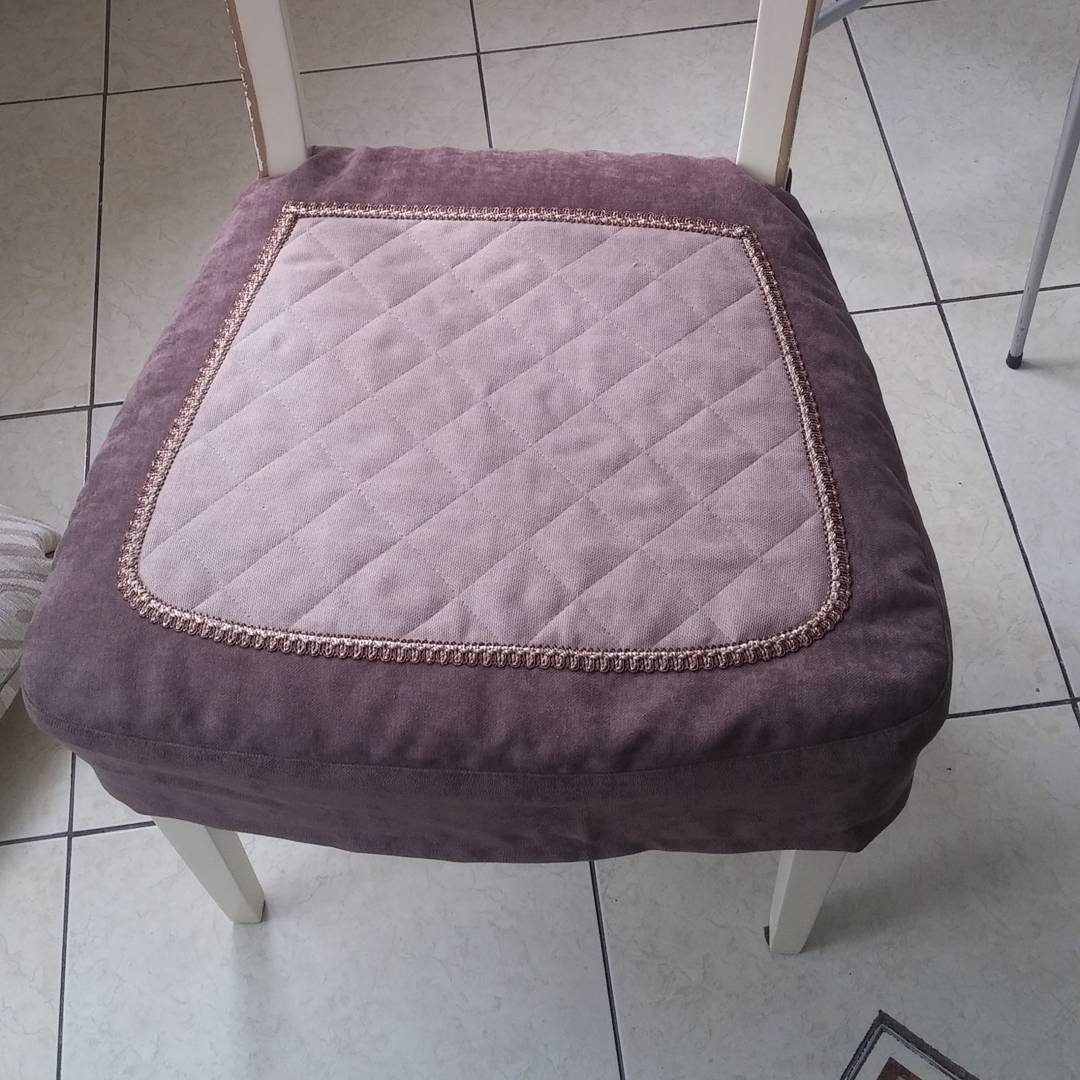
Whole
Fully cover furniture from back to leg. Suitable for classic interiors, creating a luxurious and pretentious look. These products are the most labor intensive to manufacture.
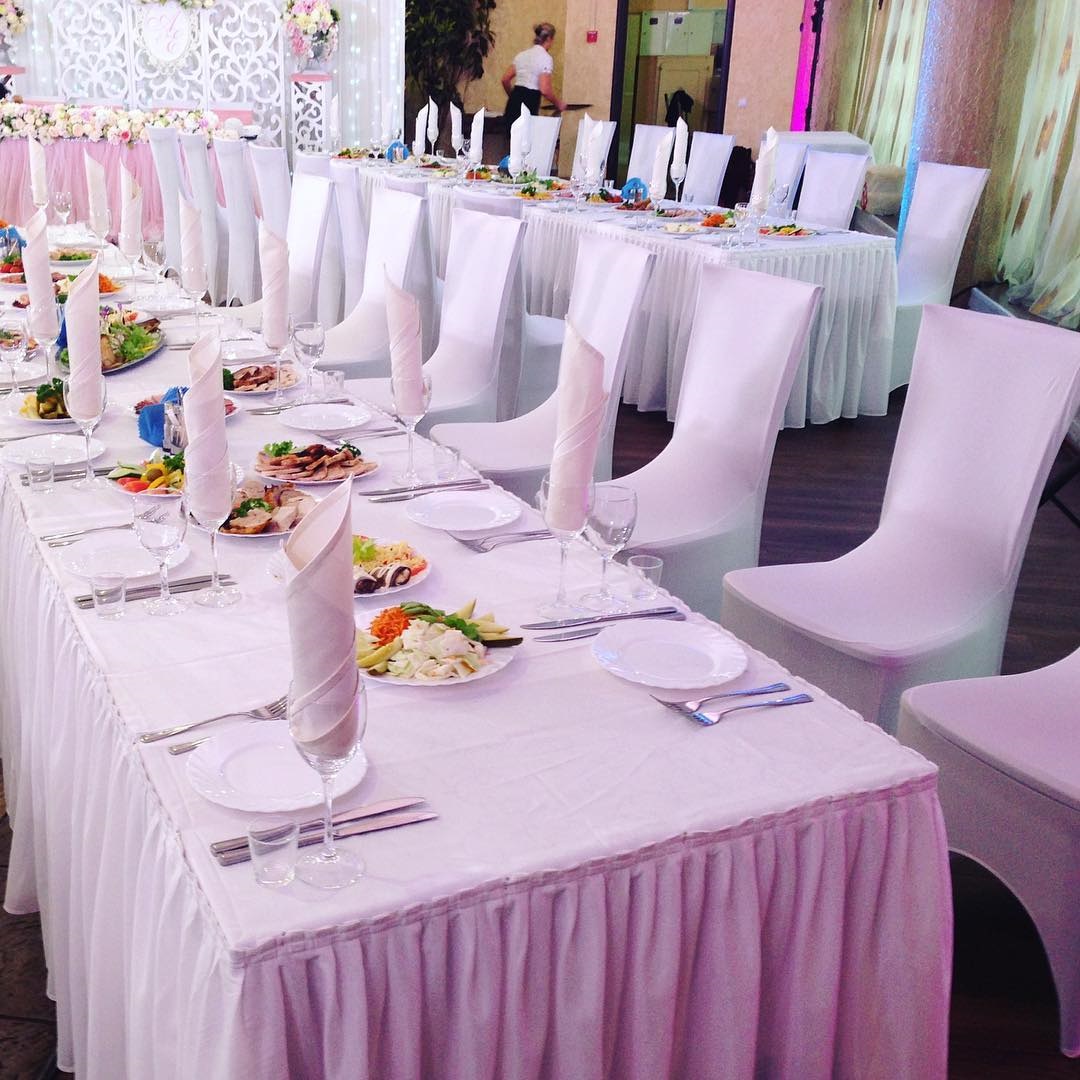
When sewing chair covers with your own hands, the choice of fabrics significantly expands. If the standard ready-made options are sold from a solid thick tapestry, then you can choose any material for your own tailoring.
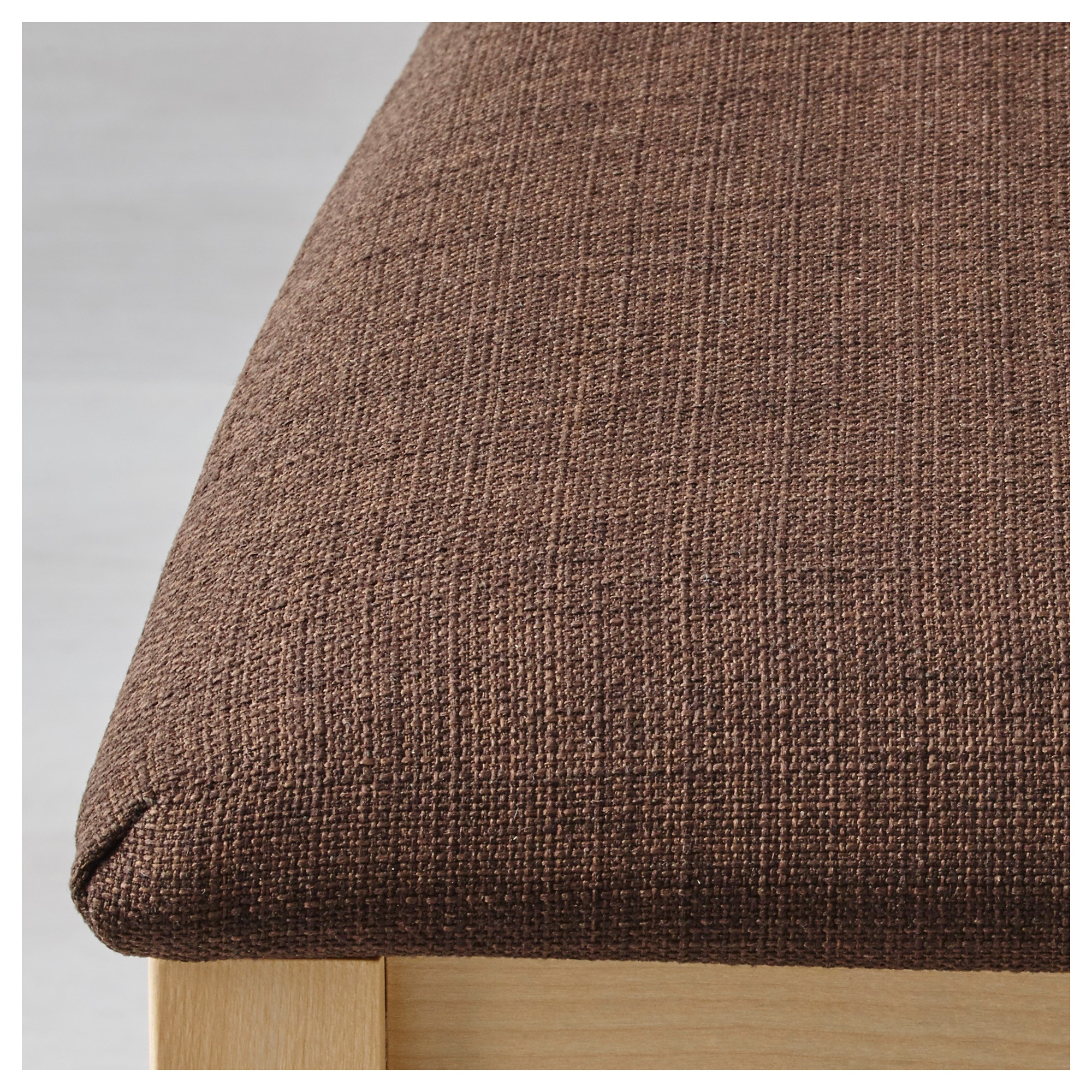
The following material options are most common.
Tapestry
Furniture material that has increased strength. Suitable for everyday use.
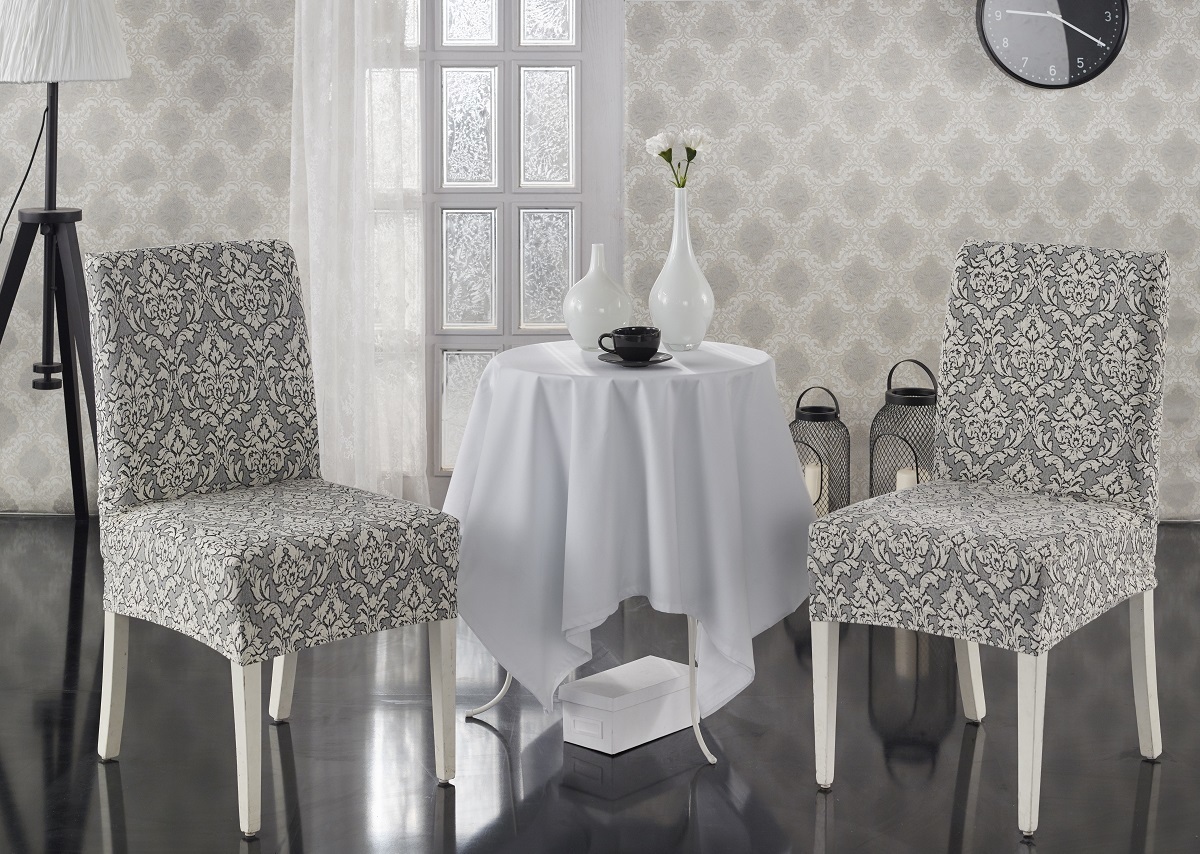
Satin
Reliable cotton fabric with a characteristic glossy sheen. It looks very luxurious. Suitable for casual and festive occasions.
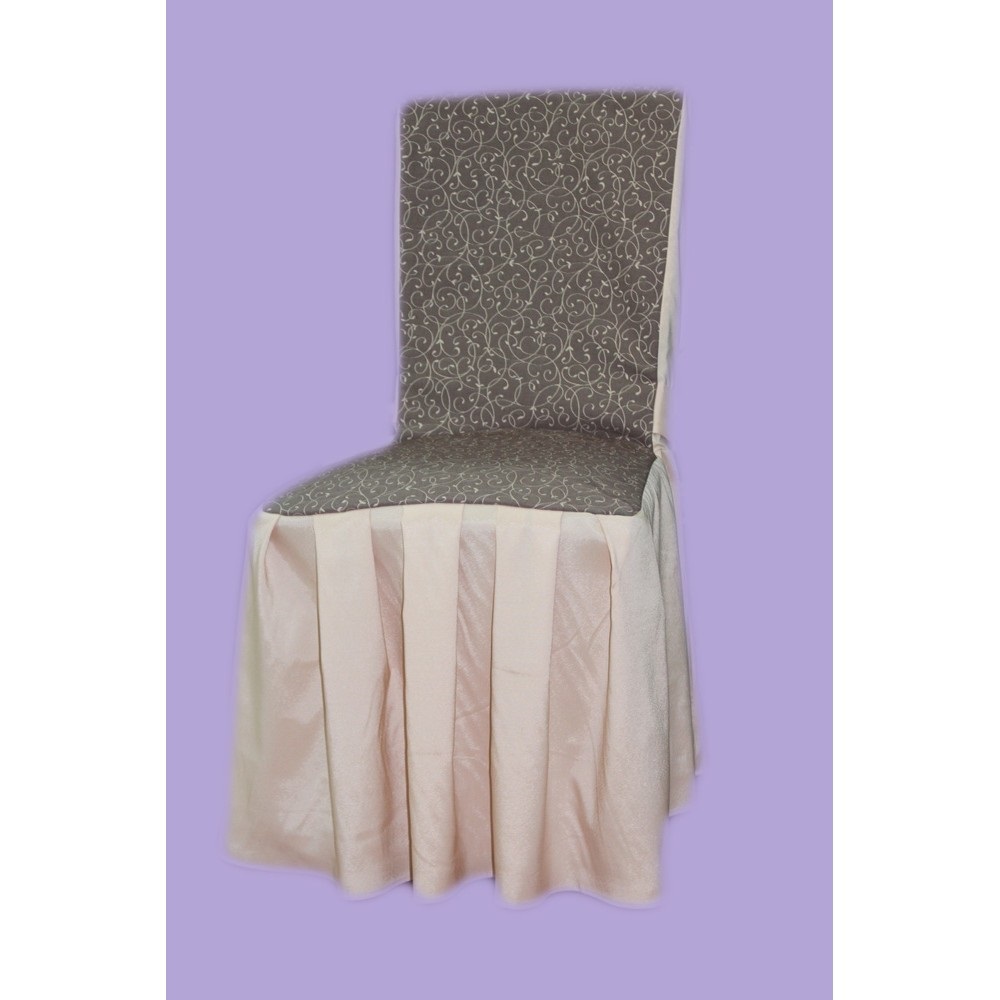
Calico
Cotton thin cheap material. It is the least reliable and wears out quickly. Suitable for additional replacement models.
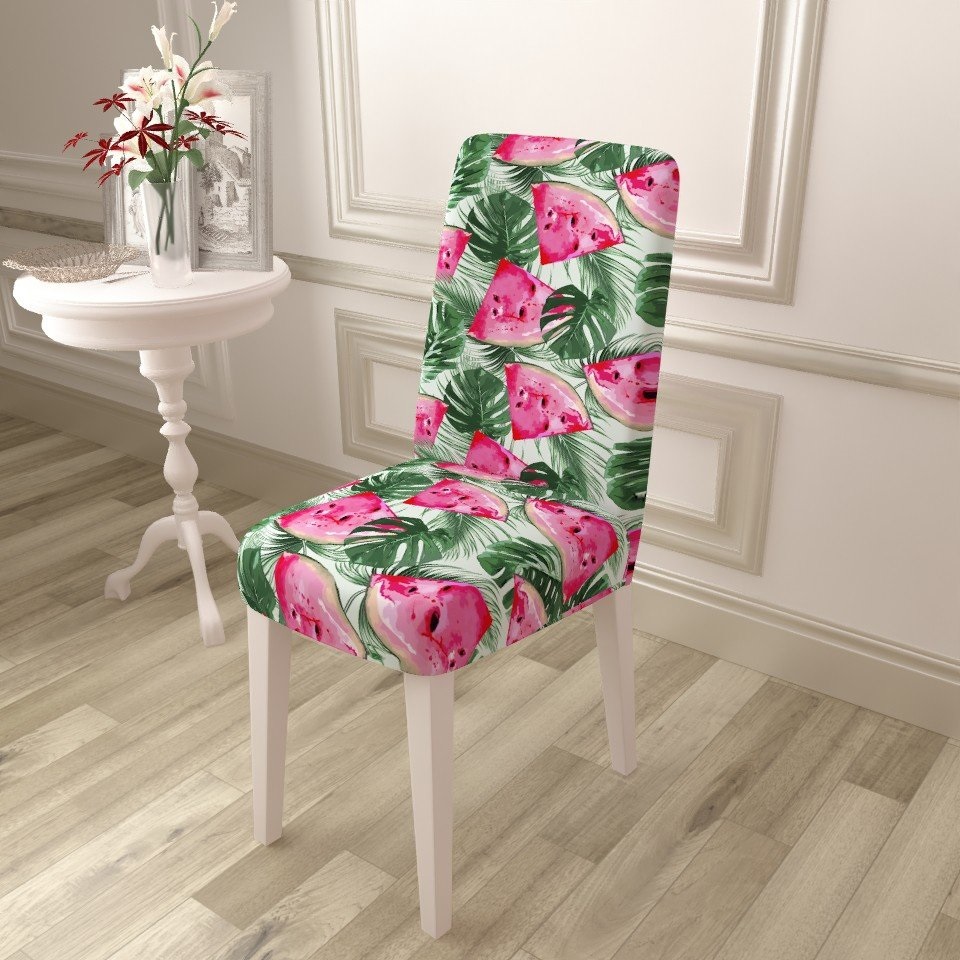
Horn or flax
Reliable linen fiber materials. Long-lasting to use. The disadvantage of these fabrics is the rough and simple look.
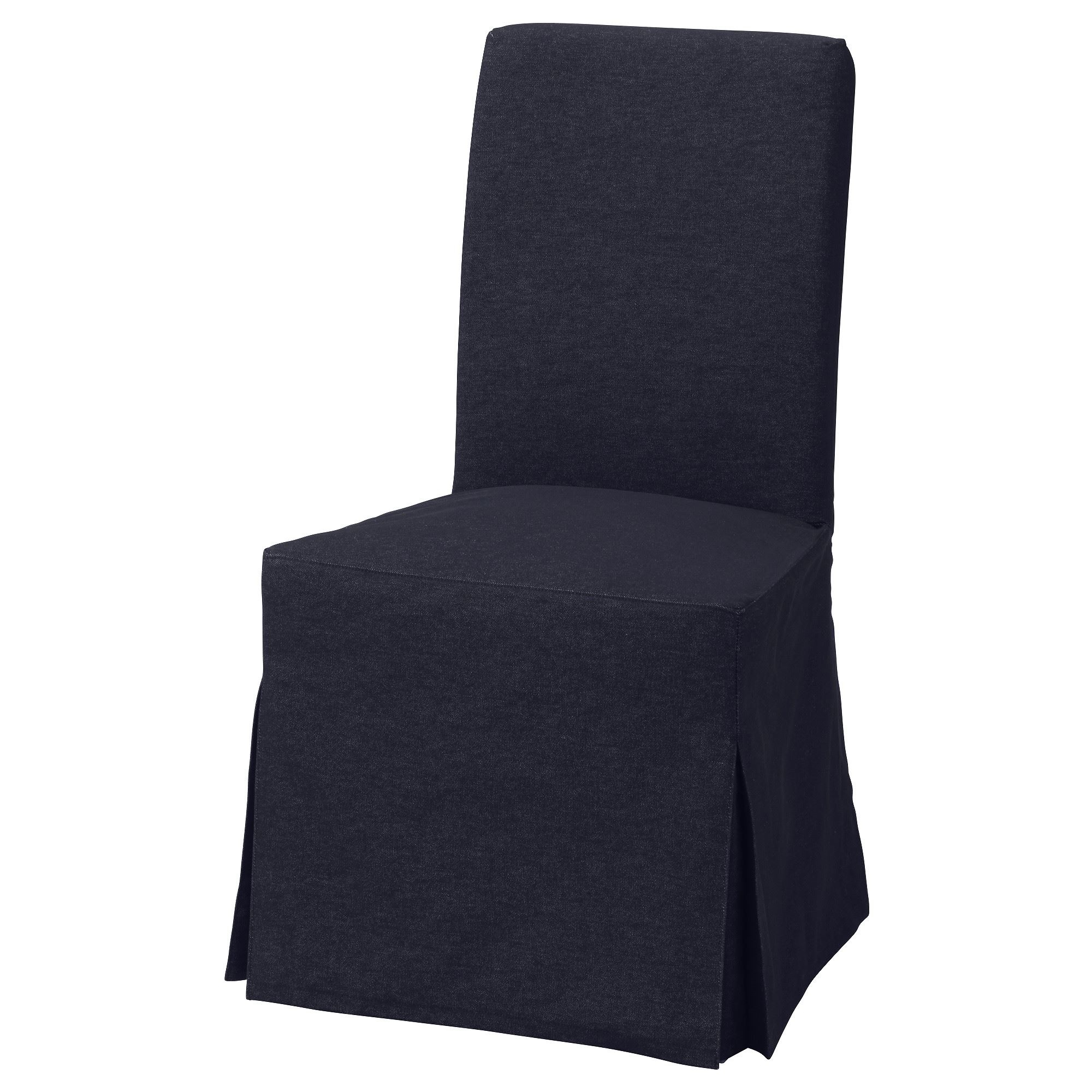
Microfiber
Modern cotton material. It is environmentally friendly, easy to use and does not wrinkle. Impurities are well absorbed.Its disadvantage is the high cost.
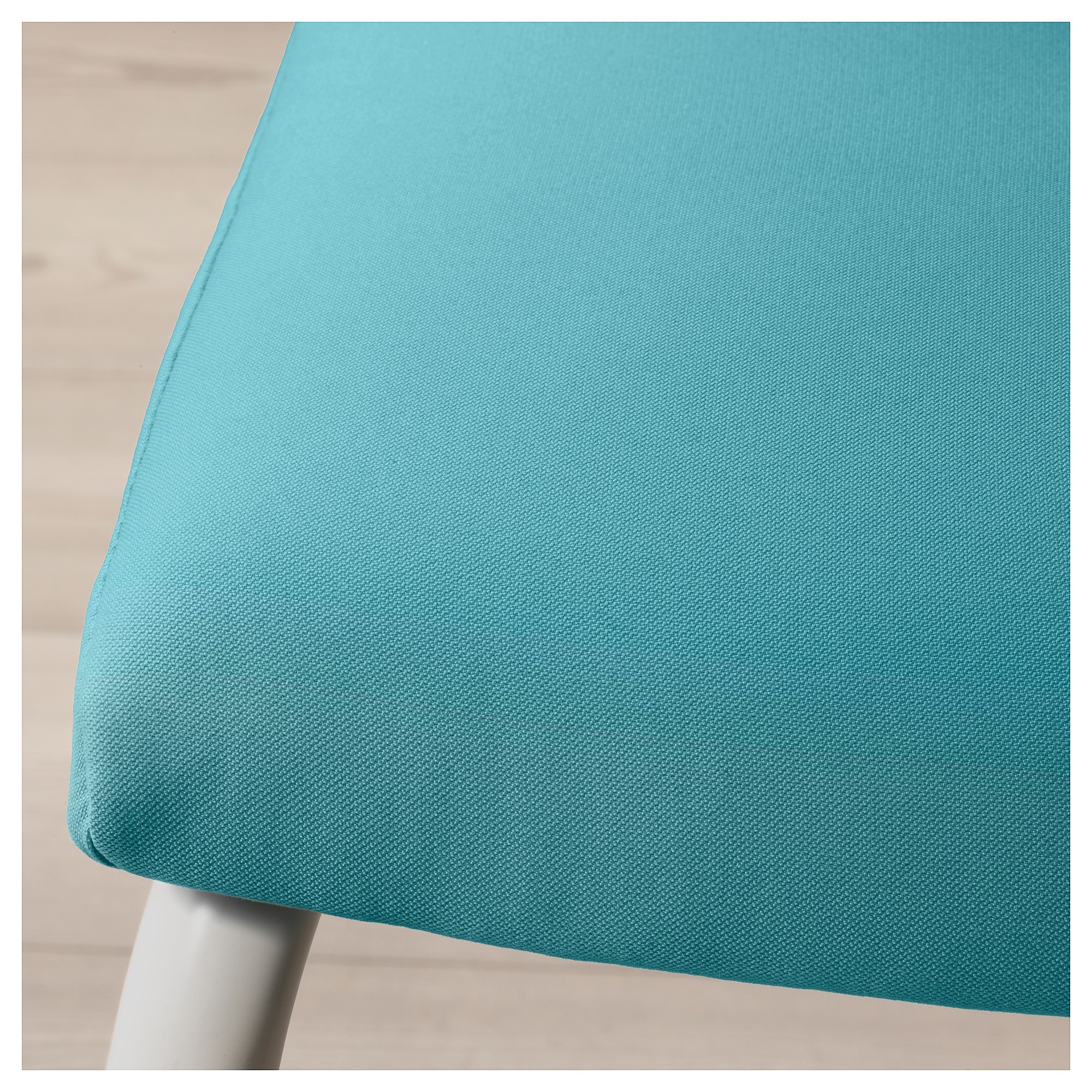
Silk and organza
Expensive, beautiful materials are suitable for special days.
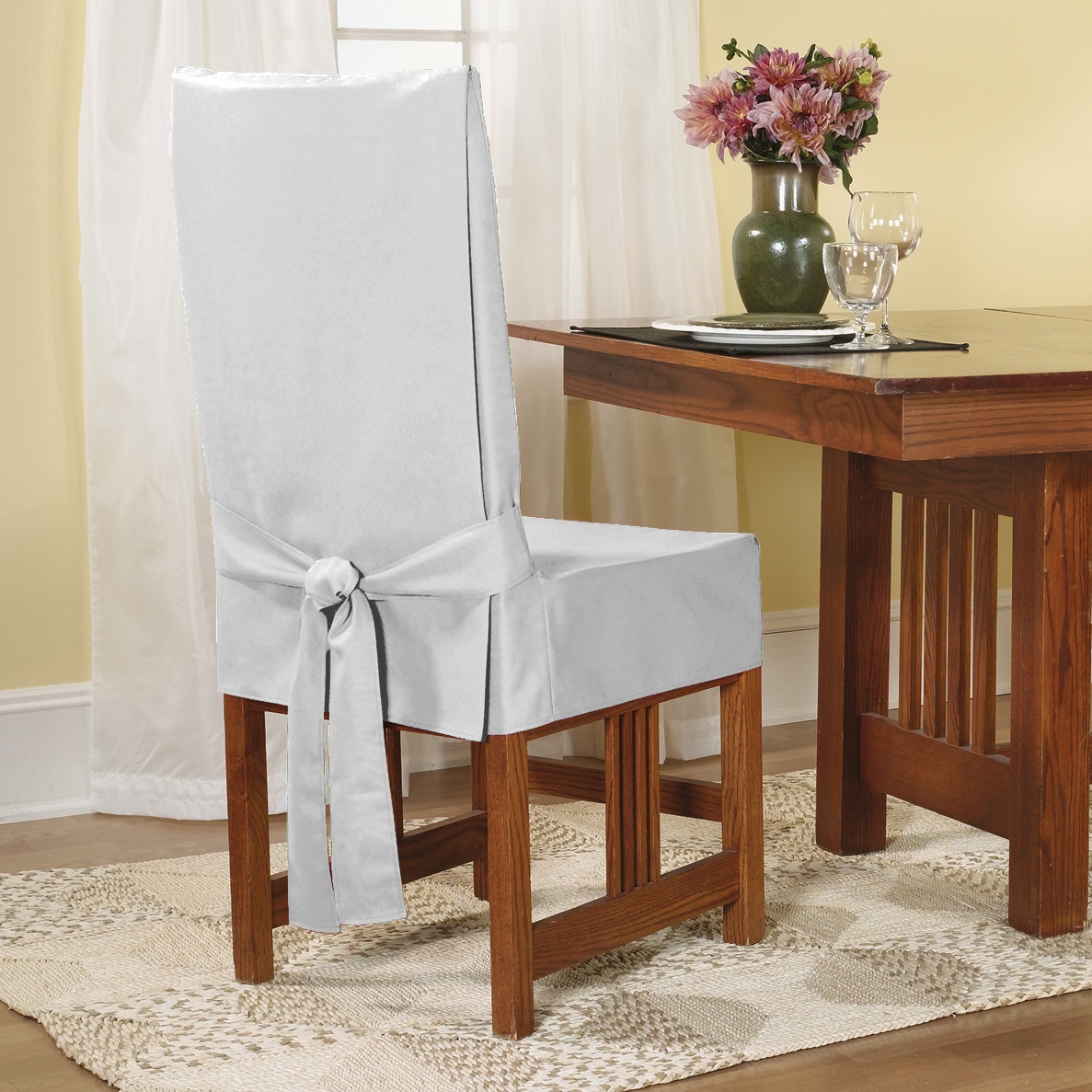
Fur
Suitable for finishing parts. Brings coziness and warmth to the room. It is inconvenient to make a completely fur product, as it is easily dirty and poorly cleaned.
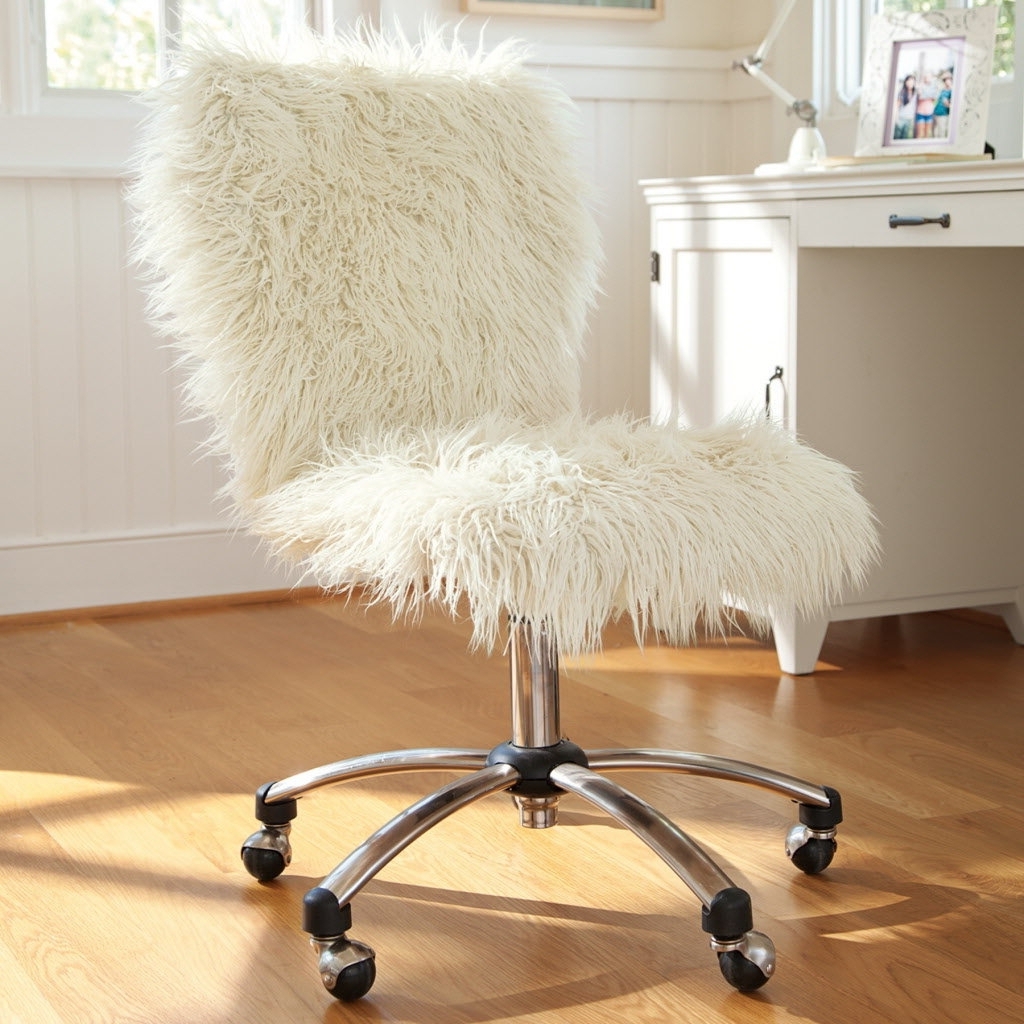
Important! For everyday use, you need to choose only natural materials that do not electrify. This can be cotton, silk or linen. Otherwise, the cover will turn the furniture into "electric chairs" in the truest sense of the word. Therefore, it is better not to use wool.
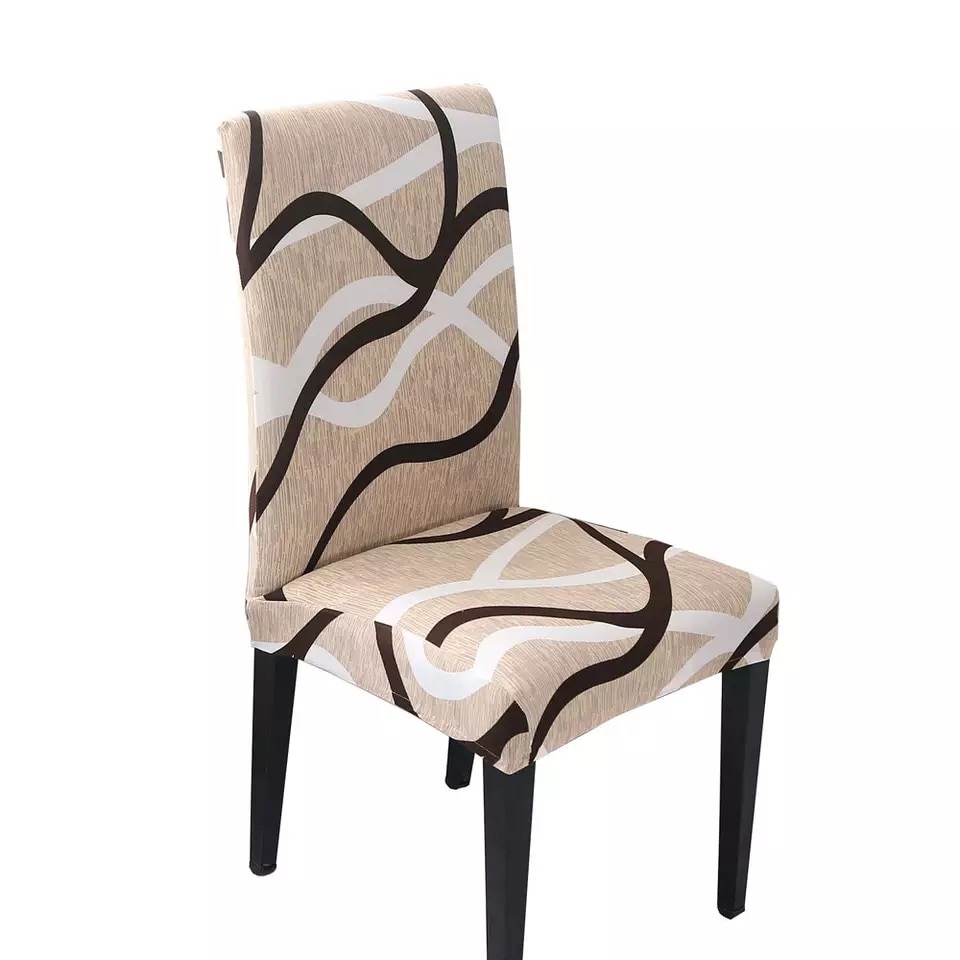
Choosing the desired design
With furniture covers, it's easy to change the style of a room. On the contrary, if the style of the room has already been chosen and is quite bright, for example, baroque, then it is better to select models for it.
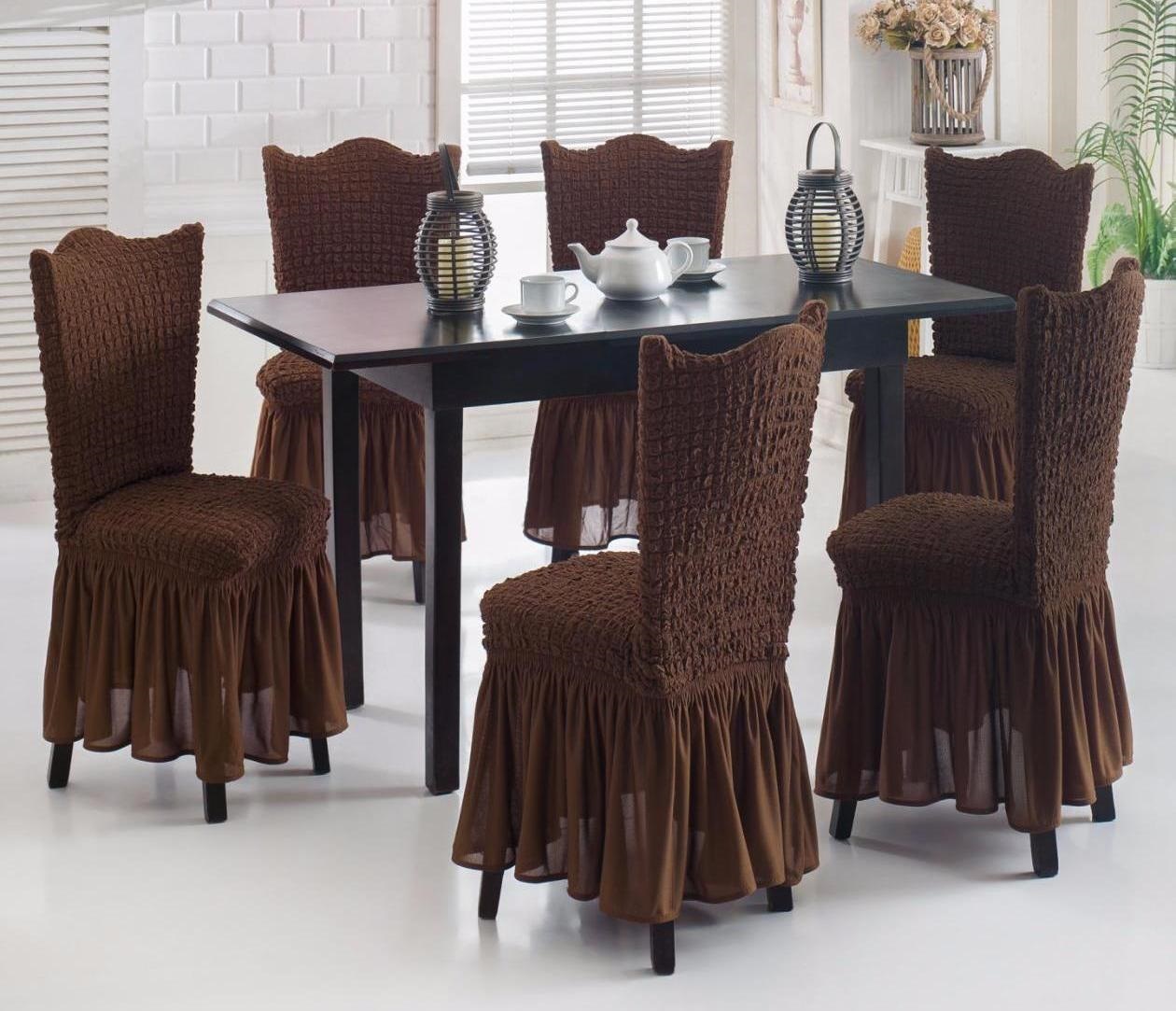
For a classic style, full options in solid satin or tapestry are suitable. Stylish folds on the back and at the edges will blend in well with the interior.
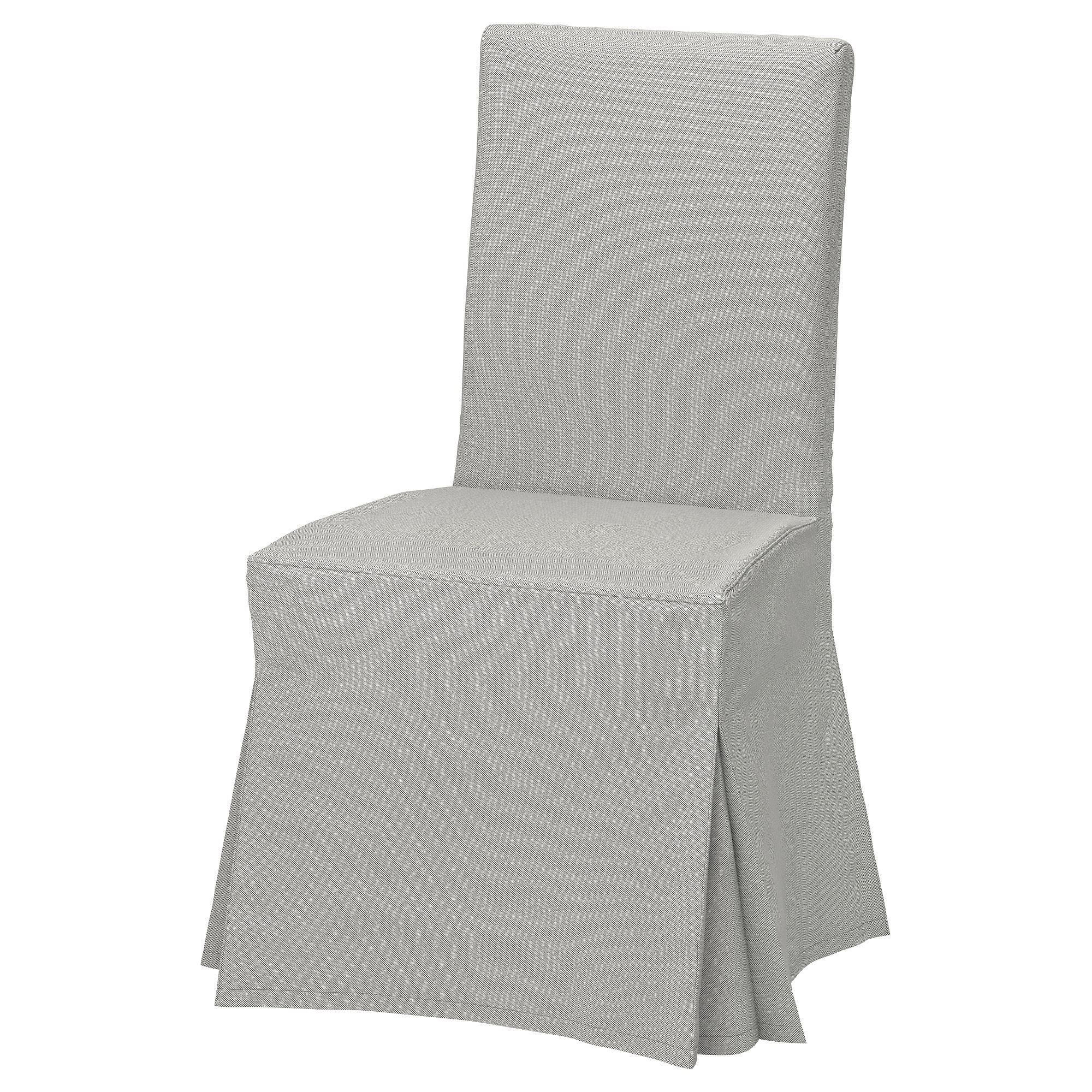
For an Art Nouveau room, it is better to create cropped full models that will cover the back and seat, but leave the legs open. The correct form will emphasize the strict lines of the interior.
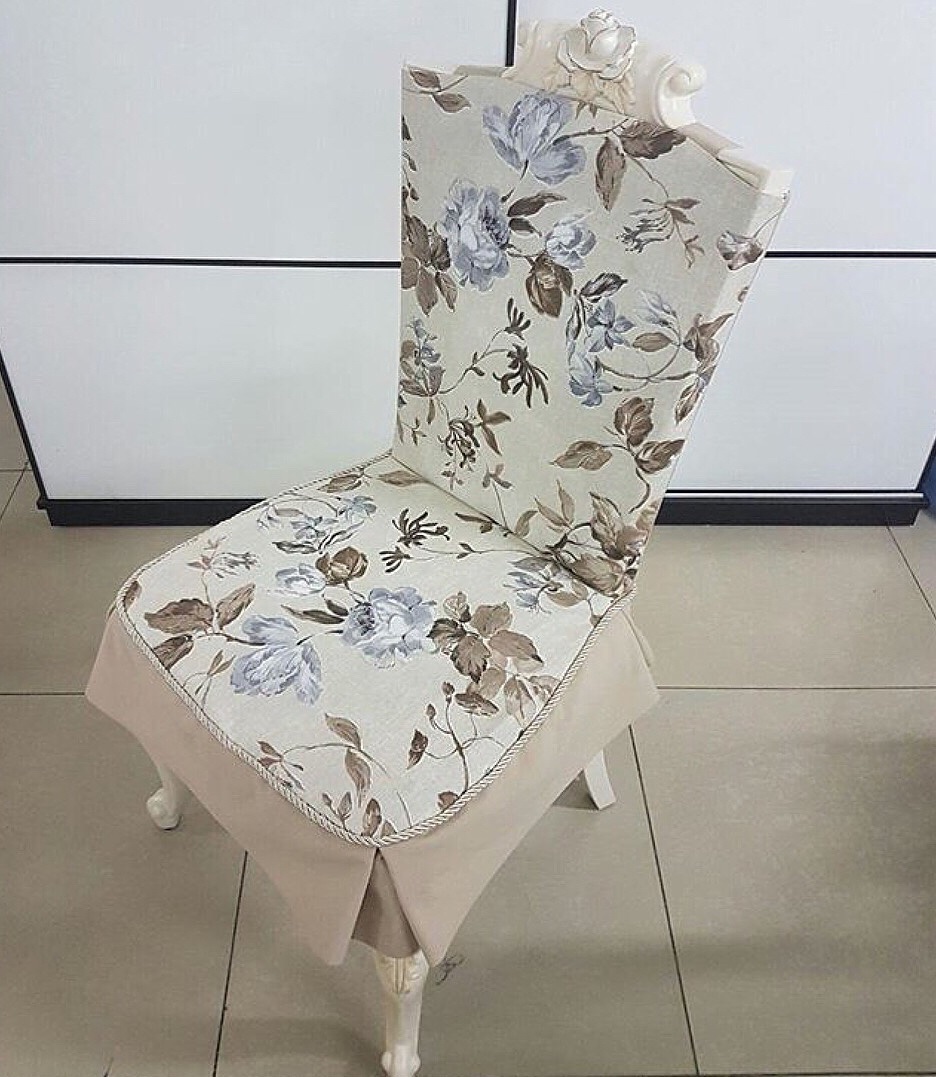
For a rustic look, take a colorful fabric and create a separate set or seating-only models. Cute ruffles and tins with cans will create a romantic rustic setting.
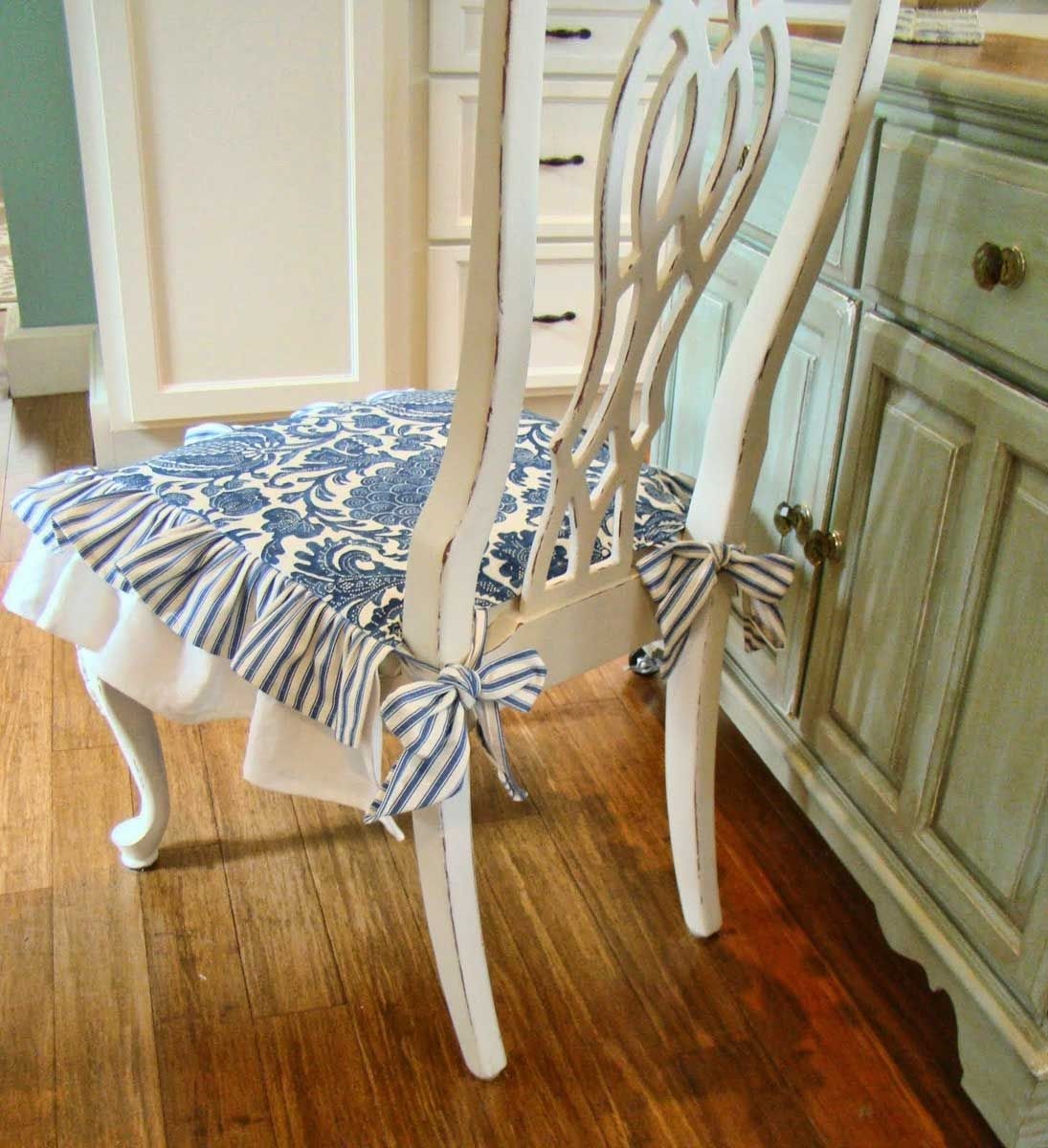
For high-tech style, you can take glossy satin and create a separate set of strict forms from it.
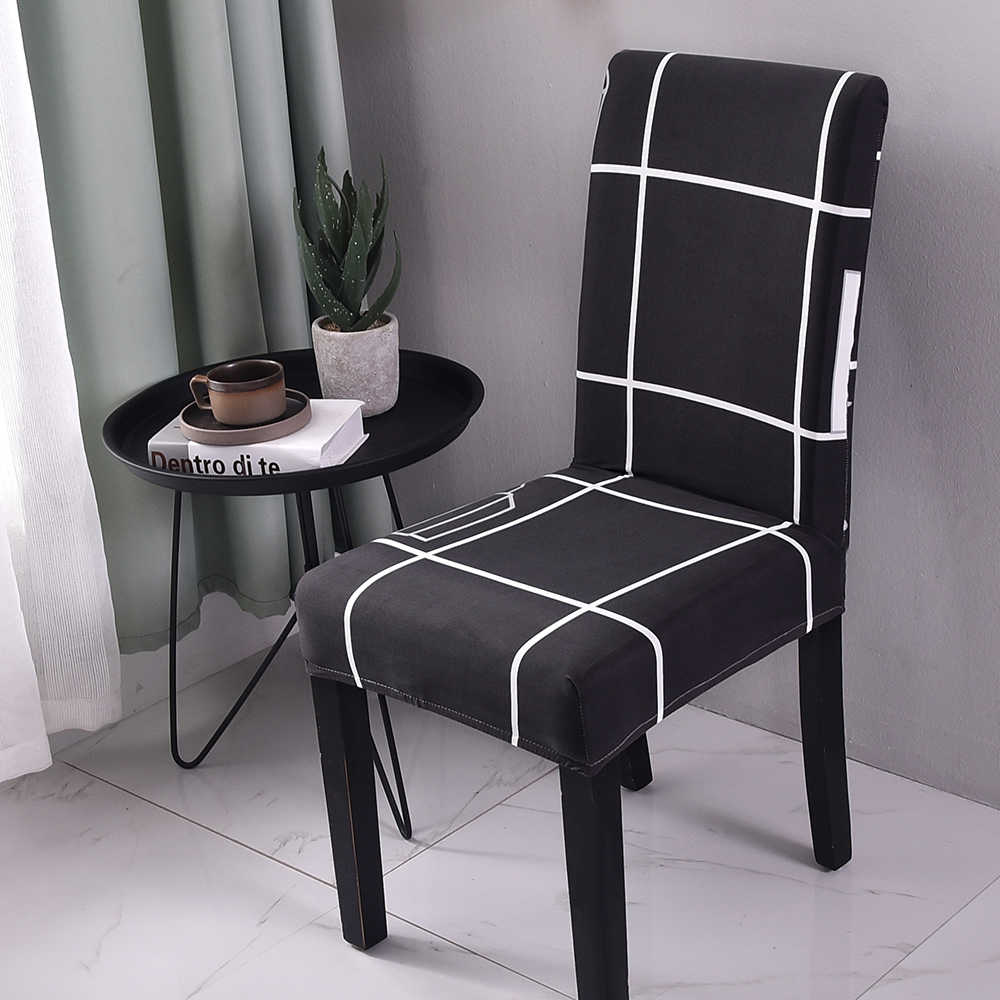
For an oriental style, colorful fabrics of a single color or with a "cucumber" print are suitable. Such options are richly decorated with rhinestones, fringes and interior tassels.
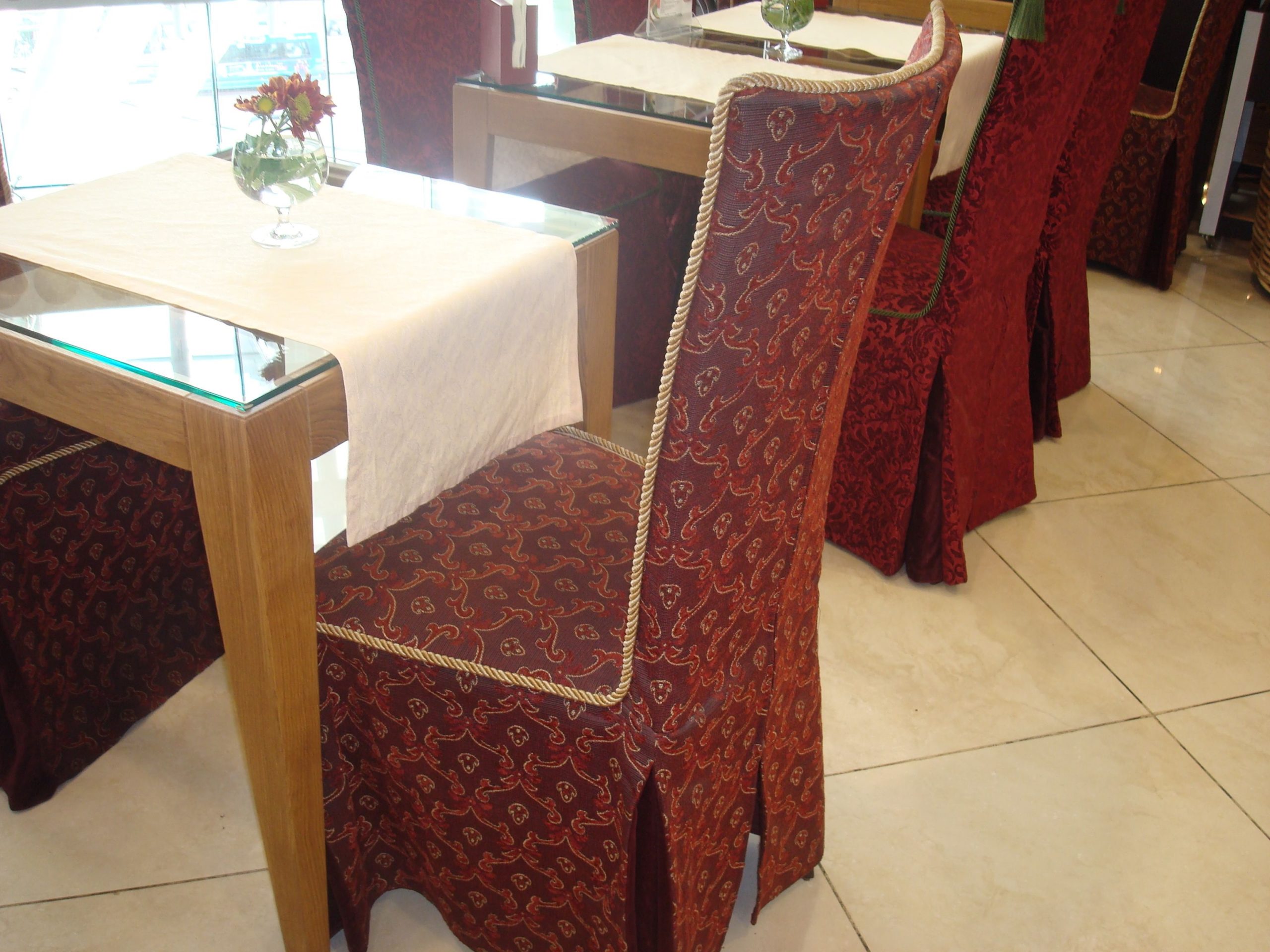
Sewing a chair cover with your own hands
To sew chair covers with your own hands, you must first make a pattern. You can create it first on paper, then attach furniture and check all the darts again. Another option is to immediately create on the fabric. This is faster, but also more complex.
The procedure for making a pattern:
- Measure the entire seat and backrest.
- Create a rectangle to fit the seat and back.
- Draw the sides next to them according to their size.
- Mark the undercuts for the corners.
- Cut out the pattern and attach.
- For folds, you need to cut out the rectangle separately, having previously calculated the depth of the folds and the length of the rectangle.
- Separately, you need to cut out the bows in the form of wide long rectangles.
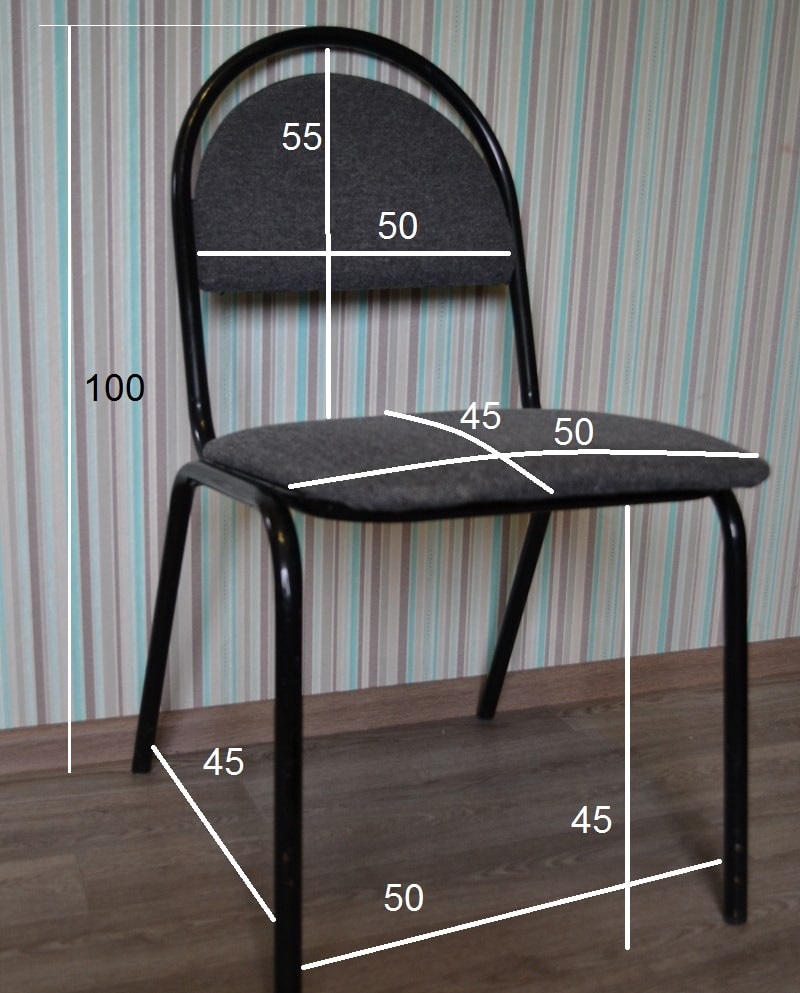
The simplest pattern will be for the seat cover. It can be cut into a simple square with a finishing allowance.
Advice. For the convenience of the seat, it can be made double-sided, and a synthetic winterizer can be laid inside. This will make it softer and more comfortable.
After that, you need to sew the pattern, carefully closing the seams. If a separate model is being created on the seat, then a drawstring for the elastic should be made along the lower perimeter. The elastic will provide good tension on the fabric and a secure fit.
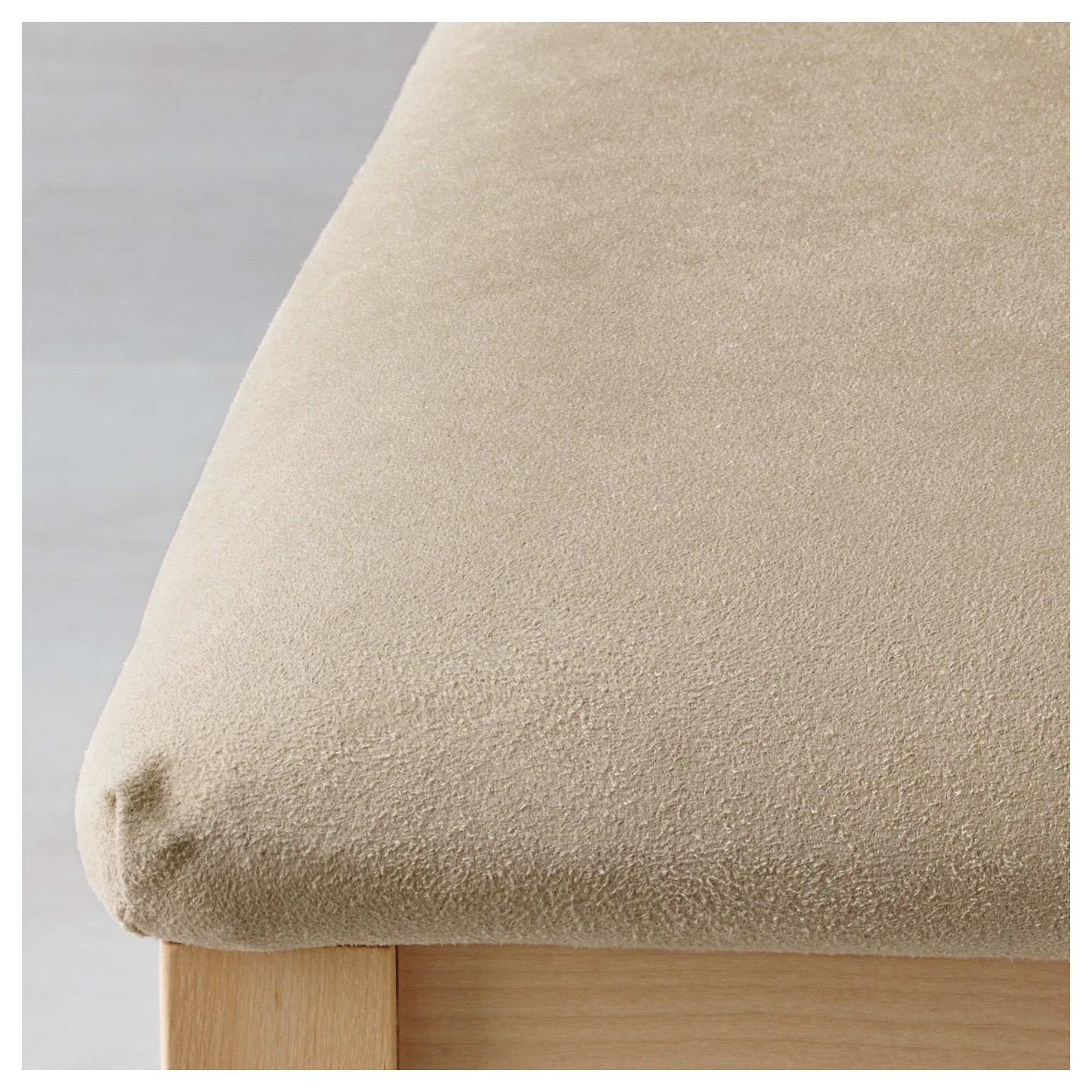
Advice. A cord can be sewn around the perimeter of the seat and backrest. This will give a clear shape to the product and make it more stylish.
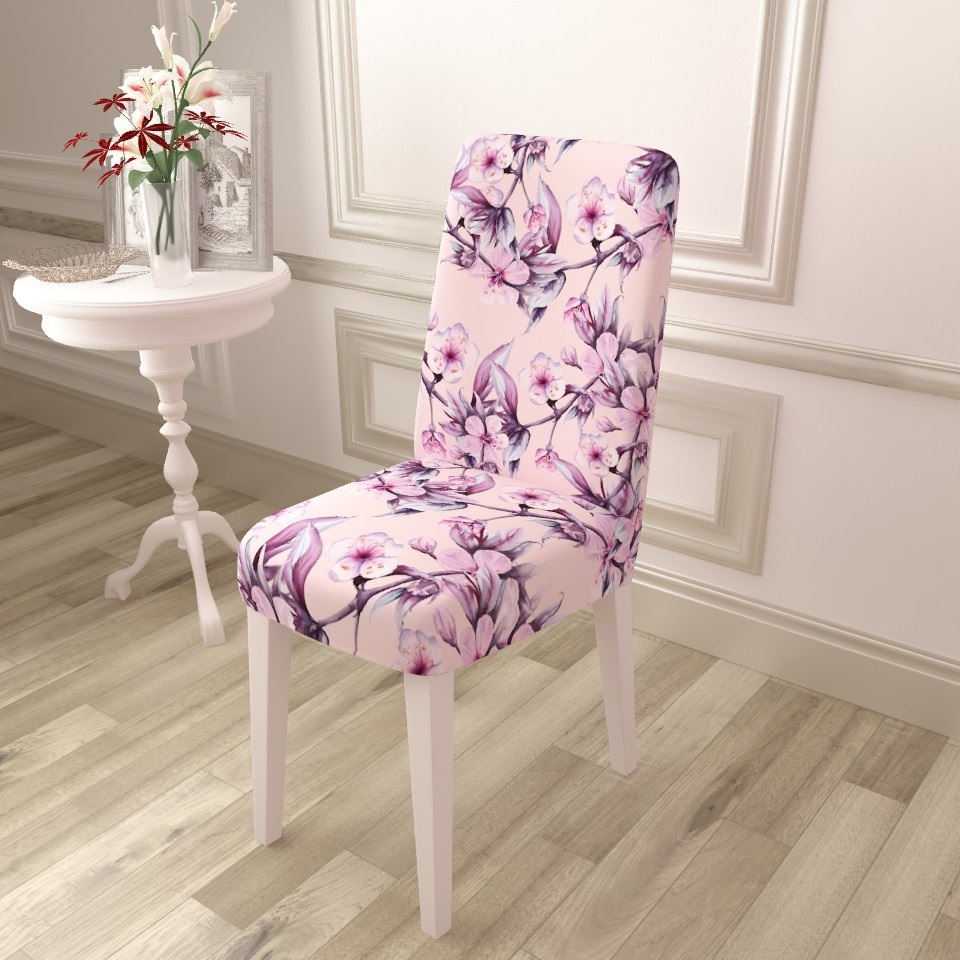
How to make do-it-yourself chair covers without sewing
The easiest way is to create patterns without sewing. To do this, you can take a regular bedspread or blanket.The cover should be wrapped around the chair and tied at the back with a large beautiful bow or pinned with a large pin.
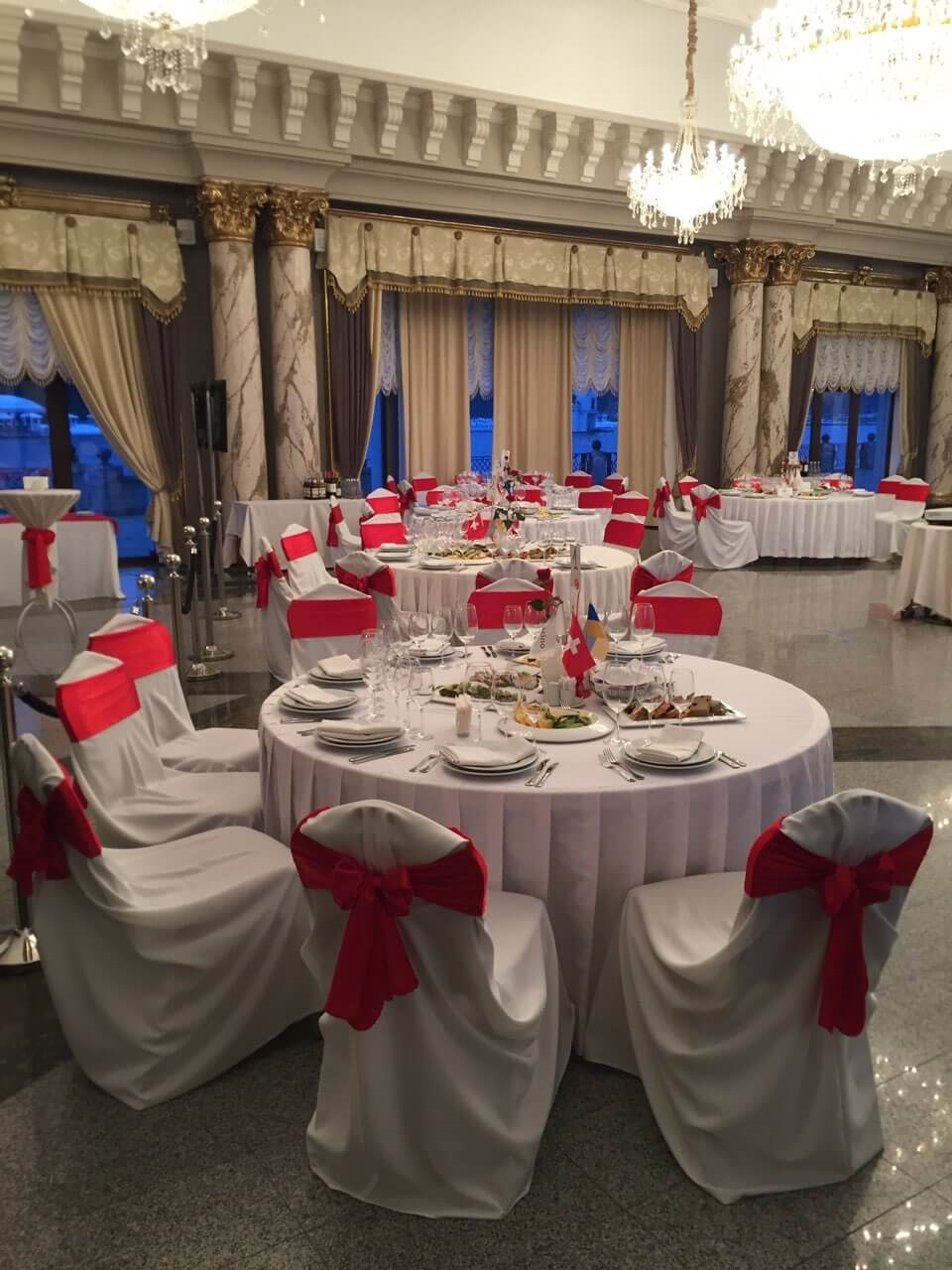
This option is ideal for Scandinavian-style rooms.
Video: workshop on sewing a chair cover
